Find out more about the 2021 WATE winners
Please enjoy reading about our winners, below. This includes those receiving the Butterworth Award, which recognises individuals with six or fewer years experience teaching in Higher Education who were among the WATE winners for this year.
I am an Associate Professor (T-Focussed) in Economics, Fellow of the HEA and Associate of The Economics Network (EN). I am Director of Graduate Studies (Taught Degrees), and among other responsibilities, within the Economics Department, I am also WP Co-ordinator and Co-chair of the Students’ Progression Working Group.
Over the summer 2020, I played a key role within the Economics Department to help transition to a blended learning approach, creating written resources and recommendations for colleagues and students to assist them moving to online T&L delivery. During the pandemic, I also developed a ‘virtual’ Departmental study buddy scheme to offer students with more chances to work with their peers and interact and socialise with others from their Programmes. Linked to the work conducted over the summer 2020, I am currently leading on an IATL funded pedagogic research project aimed at understanding students’ engagement with online resources pre/post COVID-19.
This year I created the Philosophy Teaching Exchange as a hub for staff and graduate teaching assistants to exchange best practice and facilitate peer dialogue in the Philosophy Department. It provided our department with an opportunity to coordinate and collaborate on our efforts to create the best teaching and learning experience we could in an extraordinary year. I also worked with my colleagues to develop and refine the models our department used for delivering blended teaching and learning. I selected a workshop-based model for my own modules this year (Nietzsche in Context and Philosophy of Religion). I used these workshops to engage students as actively and socially as possible by setting them collective creative tasks to work on with one another, some of which were directly linked to assessment tasks. I worked on strategies and activities to keep a community feeling in the department, including relaunching social media accounts, starting a weekly newsletter, and closely working with our Philosophy Society to provide successful community events and additional academic support activities.
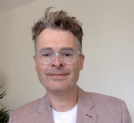
I have been at Warwick since 1998 and I am a professor in the department of Chemistry. My scientific expertise is to combine polymer and colloid chemistry with soft matter physics and to add a twist of chemical engineering.
I would like to thank all the students for their enthusiasm and dedication to their studies, and forming together the Warwick community, especially in these unusual and difficult COVID times. I am proud of what they have achieved. It was a delight to work with the students from Warwick Chemistry this academic year and I am honoured they have nominated me for a WATE award. I truly feel touched by this, more than a pleasant, surprise! A big thank you from the bottom of my heart, it means a lot.
 Andrew Brendon-Penn
Andrew Brendon-Penn
I am a Warwick graduate and a Teaching Fellow in the Mathematics Institute and a Specialist Mentor with Disability Services. I have a passion for student wellbeing and for technology.
My initial scepticism of online teaching has been replaced by optimism. Through necessity and with a steep learning curve, it has provided invaluable opportunity for experimentation and innovation as I created my department’s first two fully online modules. Listening to students has shaped my practice and has helped me to find the technological solutions to keep a human touch in my teaching.
 Siri Chongchitnan
Siri Chongchitnan
I'm a mathematician and Director of Student Experience at the Warwick Mathematics Institute. I'm also a researcher in cosmology.
I present an informal reflective piece summarising my journey in teaching maths during this unpredictable year. In particular, I discuss my use of a) fill-in-the-blank notes, b) online quizzes, c) well-edited videos and d) live polling. I also reflect on students' reception of my teaching, students' wellbeing, and my plan for the next uncertain year. Finally, I outline how my work on educational technology has impacted positively on the Warwick community and beyond.
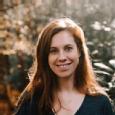 Ursula Clayton - Butterworth Award Winner
Ursula Clayton - Butterworth Award Winner
I am a Teaching Fellow in the Department of English and Comparative Literary Studies, and teach on the English and Comparative Literary Studies programme. Having begun my role mid-pandemic, I am yet to set foot on campus. Despite this remarkable turn of events, I have a strong sense of being part of the university community, and look forward to meeting my colleagues and students in person soon.
I teach a variety of undergraduate modules, and convene the ECLS department’s new Alliance Intensive Study Programme module (in collaboration with Monash University), and co-convene the new Academic Enrichment programme. I am a student-led practitioner, and aim to ensure students feel seen and heard in VLEs. Students risk finding themselves anonymised behind a screen, and so to combat that effect I use student-defined curriculum, promote and supervise URRS projects, and facilitate peer-to-peer learning by hosting student-led seminars and incorporating study groups as a core mode of module delivery. I am a passionate advocate for widening participation and was recently awarded a Connecting Cultures grant to fund a project with Refugee Education UK.
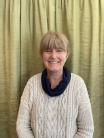 Sue Davies
Sue Davies I have been a GP for over 25 years and joined Warwick over 10 years ago. I live with my husband in Northamptonshire and have 4 grown-up children. In my spare time I act as Chair for a charity providing counselling for under 25s and enjoy walking, hiking and travelling.
I am GP lead at Warwick Medical School and organise GP related teaching and placements across the curriculum. Last year I developed and implemented multiple innovations to ensure high quality, accessible on line resources and safe, effective clinical experience in placements. This includes introducing a virtual patient across all phases of the curriculum, providing a safe space to develop problem solving and management skills. In addition, clinical placements have been re-designed to incorporate upskilling of communication skills in remote consulting. Finally, I remain committed to continue evolving the changes that have had a positive impact for students and staff.
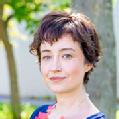 Naomi de la Tour
Naomi de la TourI am a Senior Teaching Fellow and academic lead for Project Support in the Institute for Advanced Teaching and Learning. I chair the Learning from Crisis WIHEA Learning Circle and co-chair the WIE Future of Public Engagement in HE Learning Circle.
The changes brought to the imaginations and experiences of students and colleagues by the COVID pandemic were profound and necessitated a totally revised pedagogic approach to my teaching. The emphasis on community remained, but rather than taking an emergent approach, I sought to co-create communities of care, emphasising the importance of compassion to self and others in educating and learning. This pushed further my work on accessibility, inclusion, decolonising, and integration which I believe necessarily underpins effective, transformative interdisciplinary teaching and learning in which the expertise of all community members is honoured and their roles as educator and learner emphasised.
 Roxanne Douglas - Butterworth Award Winner
Roxanne Douglas - Butterworth Award WinnerI am a Teaching Fellow with the English and Comparative Literary Studies Department, this year I also teach ‘Feminism, Politics, and Social Change in Modern Britain’ with the Department of History. I completed my PhD on Arab feminist writing in 2019 in the ECLS Department at the University of Warwick, and have been teaching between a number of departments at Warwick (ECLS, History, IATL and Liberal Arts) since 2016. I have led a number of pedagogic interventions, events, and CPD workshops (‘Risky Classrooms’, ‘What Do You Mean??: Supporting Undergraduate Essay Writing’, ‘Supercharged Speaking’, and ‘Emotions and Connections in the Socially Distanced Classroom’). I am currently working on my monograph, tentatively titled 'Levantine Feminist Literature from the 1980s to the Present: Uncovering, Recuperating and Restoring Arab Women’s Narratives'.
In this statement I consolidate and reflect on the challenges of the last academic year by devising my 'Inside/Outside' ethos. This ethos captures the positives of the collapse of distinctions, and asks what else might be possible for the future of HE? This year I learned that the word ‘academy’ comes from the ancient Greek word for ‘garden’: Plato used to teach his students in open green spaces just outside the walls of Athens. I think we need to go back to our roots. To do so, I propose that we think critically think about insides and outsides, literally and figuratively.
‘Inside/Outside’ characterises my pedagogic approach on three main levels: student experience, pedagogic approach, and the university community. This includes student mental health (inside), and the use of outside spaces in curricular and non-curricular activities (outsides). I have developed my blended and online pedagogic approaches this year through CPD and community building (inside), as well as developing extra-curricular groups and activities to help students think beyond curricular expectations ad grades (outside). Lastly, I have developed the university community by co-devising workshops that invited participants (staff and students) to challenge gendered harassment online (inside), and by participating in outreach programmes (outsides).
I am to take this challenging of distinctions forward in my teaching and outreach activities, and I aim to blend some of these approaches.
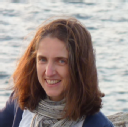 Cathy Hampton
Cathy HamptonI am the Director of Teaching and Learning in the SMLC, and I'm based in the French section there. My recent research has focused on: HE pedagogy and the Year Abroad, bridging the gap between school and university-level language teaching, interdisciplinary and cross-curricular learning, the student experience and student-centred pedagogy.
I have used 'imaginative anticipation' as a heading under which to summarize my approach to the year. I explore some practical responses: how basic online tools and spaces have allowed me to reframe live language workshops and add a dimension of widening participation engagement to a module on language teaching. More philosophically, I also explore how a crisis situation has freed us to dare to anticipate other peoples' needs (learners / colleagues / new stakeholders) and to engage with them more proactively through online tools because we feel linked by a common experience of uncertainty.
 Andi Hoxhaj - Butterworth Award Winner
Andi Hoxhaj - Butterworth Award WinnerI am an early career academic teaching in the European Union Law module at Warwick Law School. My areas of research focus on corruption, governance, the rule of law, European integration and the Western Balkans. I was awarded my doctoral title in 2017 at the University of Warwick. In April 2018, I was awarded the prestigious British Academy Rising Star Engagement Award funding my project 'The UK—Western Balkans post-Brexit'. I am an author of ‘The EU Anti-Corruption Policy: A Reflexive Governance Approach’ published by Routledge in 2020.
I am honoured to be awarded the Warwick Award for Teaching Excellence and humbled by the nomination from our fantastic students. It is essential that we work more closely with our students and create a safe environment where students are able to share their challenges with us as educators – know that we are listening, and fully committed in supporting them. Student voices being heard and validated is the key to open channels of communication and academic engagement, especially during the COVID-19 pandemic, but not only. Furthermore, curiosity and lack of fear in exploring methods of teaching tailored to our student’s needs are also critical. Their success is our success.
 Jim Judges
Jim JudgesI am a Senior Academic Technologist in the central Academic Technology team, now based in the Education Group. I support the Learning Design Consultancy (LDCU) and I work two days a week in the Chemistry Department. I have also provided some technology support for Engineering during the last year too.
The past year has been a whirlwind of activity with an understandable increase in support requirements related to online learning. I have enjoyed working with colleagues in departments and across the university to help them to develop their skills and confidence so that they can deliver an effective and more engaging experience for our online learners. Some highlights include leading a small team to produce one of the Warwick Online Learning Certificate (WOLC) modules that was later adapted and developed into the Warwick Online Learning Fundamentals course aimed at all new students starting in October 2020. Throughout the year I have facilitated weekly LDCU Open Discussion support meetings to develop networking and further encourage the sharing of practice. I have also enjoyed producing a series of LDCU ‘Talking Online Learning’ Podcasts and it has been a privilege being able to interview colleagues from across the university to find out about and share their experiences, challenges and solutions related to the move to online learning.
 Matthew Leeke
Matthew LeekeI am a Reader in the Department of Computer Science at the University of Warwick. I received MEng and PhD degrees in Computer Science from the University of Warwick, before joining faculty in the Department of Computer Science as the inaugural recipient of the John Buxton Lectureship.
In a year of unprecedented challenge I redeveloped many aspects of my teaching according to the principle that community and teamwork are more important than ever when we can’t deliver taught sessions in-person or rely on more traditional teaching methods. In collaboration with module tutors and students, that redevelopment facilitated the incorporation of student-led lectures and long-form discussion as pillars of academic and social community building, each of which will be at the core of my teaching as we develop sustainable models of blended learning.
 Heather Meyer
Heather MeyerI am an IATL Teaching Fellow. In this role, I develop strategies which aim to diversify assessment and integrate ‘authentic’ interdisciplinary and transdisciplinary learning experiences within assessment cycles. I advocate holistic learning and pedagogic innovation, and my research interests involve exploring how the ‘global’ is featured within educational contexts.
I am very honoured to be a WATE finalist this year! 2020/21 has produced a range of unprecedented challenges, and for that very reason has created an exciting opportunity to reimagine my teaching practices. My modules this year included asynchronous multidisciplinary peer learning, which helped create a sense of community amongst my students from different disciplinary backgrounds; a special focus on student-led learning and student-devised content; co-created assessment documentation (including assignment briefs and marking criteria) with a special focus on transdisciplinarity and decolonisation; and interactive online learning opportunities geared to minimise accessibility and engagement barriers. Overall, an exciting year full of innovation!
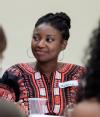 Meleisa Ono-George - Butterworth Award Winner
Meleisa Ono-George - Butterworth Award Winner I am a social-cultural historian of race and gender in Britian and the Anglo-Caribbean, as well as a public historian. I am chair of the WIHEA Anti-Racist Pedagogy Learning Circle and co-chair of the University's Race Equality Taskforce.
Working with staff to develop anti-racist pedagogical practice and challenge racial inequalities, and through this work, create cultural change and a positive student experience.
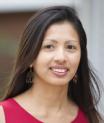 Stefania Paredes Fuentes
Stefania Paredes Fuentes I am an Economics Educator working on increasing diversity in Economics and creating more inclusive learning environments that embrace this diversity. At Warwick, I co-organise the Warwick Anti-Racist Pedagogy Forum. In the UK, I am Diversity Champion of the Royal Economic Society and sits in the Economics Network’s Executive Board.
COVID19 challenged every aspect of our work. My goal this year was to rethink academic spaces in a way that students could engage and feel part of the academic community despite the challenge we all (students and staff) may encounter. In order to support students and in the hope that all students had a fair chance to do well in my courses, I created teaching resources that embedded three principles: engagement, flexibility and collaboration. Using Teams, I developed learning communities that fostered students’ sense of belonging. I learnt that teaching with empathy adds value to my work as a teacher.
 Martyn Parker
Martyn Parker I am the Mathematics and Statistics course director. I have worked on national projects around the transition from school to university mathematics, learner analytics and problem-solving in mathematics. I also work with national organisations to encourage and facilitate participation in higher education.
I explore how this crisis has empowered us to examine, reflect and challenge our approach to education. The rapid reinvention of higher education has opened our eyes to new learning environments that, in many cases, have enhanced our delivery. Nevertheless, reflection is required to understand the pedagogical knowledge underpinning this paradigm shift and its profound implications for the future of education.
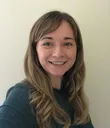 Dani Pearson - Butterworth Award Winner
Dani Pearson - Butterworth Award WinnerHello! I am Dr Dani Pearson, a Teaching Fellow in the Chemistry Department and most of my teaching focuses around the undergraduate laboratory modules. I have been working at Warwick for four years and continue to love what I do! Teaching in the lab is so different to giving lectures as you can really get to know each student personally and understand their learning style. For me, getting to speak to and know our fantastic students better and teach them how to make some pretty cool coloured compounds in the lab is the true highlight of my job!
This year has been a huge learning curve for all of us, particularly all those who are most involved in practical teaching! A highlight for me is an experiment I transformed into a research, business-themed, online experiment, where students acted as research scientists, worked through a personal Moodle lesson, before meeting back together to collaborate their results and plan a discussion for the “staff meeting”! Other highlights include the 1st year non-chemistry online presentations, where despite not being face to face, were still able to instil a wholesome sense of community amongst students. Also, a collection of bespoke, Warwick specific resources have been developed to support practical learning online which will be used beyond the pandemic. In addition, I am sure that many of these resources and the lessons learnt while developing them have shaped the way we will teach practical Chemistry in future, and could be very relevant for other practical based subjects, in a collective effort to improve our student experience of all practical sciences.
 Kerry Pinny
Kerry PinnyI am a Senior Academic Technologist in the central Academic Technology team and member of LDCU. I lead the team that provides guidance, training and technical support for Moodle, Mahara, H5P, Vevox, Padlet, eStream and Echo360.
I have been involved in a lot of collaborative work this year. Putting together Moodle courses for staff (TfLO) and students (WOLC), online guidance on our tools, training and workshops. None of my ‘achievements’ would have been possible without the support and input of colleagues from across the University. I hope, in my own small way, I have made a difference to colleagues and students.
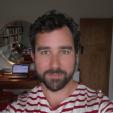 Mark Storey
Mark StoreyI work in the Department of English and Comparative Literary Studies, where I am an Associate Professor and, currently, the Director of Teaching and Learning. My research specialism lies in American literature, and I teach and convene two honours-level modules, 'Twentieth-Century US Literature' and 'American Horror Story: US Gothic Cultures ,1790-Present'.
Five key lessons I take from this year: 1) Digital tools can reinvent the way students experience the time and place of learning; 2) Online and digital teaching is not just a bolt-on or a substitute for the ‘real thing’ 3) The digital classroom needs to keep in mind the socio-economic barriers that many students encounter; 4) The spaces we create on campus need to be democratising, but our ‘classroom’ also needs to imagine itself as existing beyond institutional space; and 5) This is a collective transformation and we need to learn from each other.
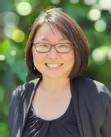 Celine Tan
Celine Tan I am Reader in Law and teacher and scholar of international economic law. I am a woman of colour from the global south who is committed to developing inclusive, accessible and representative scholarship, practice and communities of teaching and learning that reflect the lived experiences and realities of the majority world.
I am honoured to be awarded the WATE. It has been an extraordinary year for both students and staff. I hope that I have, in my capacity as Director of Postgraduate Studies at the Law School, as a teacher of international economic law, a personal tutor and a colleague, to steer us through the challenges, including facilitating a rapid transition to online and hybrid education, building an inclusive community of learning, teaching and decision-making that also engages with respectful but robust criticism upon which we need to develop our practice.
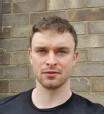 Nicholas Tawn - Butterworth Award Winner
Nicholas Tawn - Butterworth Award WinnerI am in the second year as an Assistant Professor in the Department of Statistics, having previously been a PhD student and Postdoc at Warwick during which time I was twice nominated (and once commended) for a WATE award.
Following the pandemic led seismic shift in teaching regimes, it is critical that we really take on-board student feedback as we adapt our practices. I discovered most students were really missing lectures! To help bring normality and structure back for the students I delivered my module as full lectures. Simulating a real live lecture environment with humour and informality, aided by props, helped create an atmosphere of approachability and community. Alongside this, supported by experienced colleagues, I integrated a number of technology tools that dramatically enhanced the delivery of the module and proved highly successful for a small overhead.
 Claude Tregoat
Claude Tregoat I took an MSc in International Studies, I worked in the tourism industry and as a translator but was always more interested in teaching languages. After completing my PGCE, I joined the Language Centre and my pedagogical interests are in virtual exchanges.
Over the past year, moving to remote teaching, my priority was to preserve the human connection essential in the learning and teaching process.
To achieve this, I started by building a community with my students, with online activities even before our first class. I supported inclusivity and giving students a voice by exploring the use of French inclusive writing in class. I promoted global virtual mobility by partnering my students with Université Clermont Auvergne students for a telecollaboration project, and allowing them to claim an Erasmus+ Virtual Exchange badge. To foster further collaboration and students as active learners, I introduced weekly asynchronous discussions in small groups in Teams for students to develop their language skills. To reduce stress and support access, I streamlined our learning environment. Finally, I adopted a sustainable approach to Teaching and Learning to promote resilience, and students as actors of change.
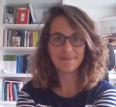 Leticia Villamediana Gonzalez
Leticia Villamediana GonzalezI joined Warwick in 2014 as a Teaching Fellow in Hispanic Studies, SMLC. I am currently a Senior Teaching Fellow and I am also Language Coordinator and SSLC Academic Convenor in Hispanic Studies. I was also honoured to become a WIHEA Fellow a couple of years ago, which has been an excellent learning opportunity and experience.
As a teacher, it has been the most challenging but rewarding year of my career. And I know this also depicts what my colleagues and students have experienced. The enormous teamwork started over a year ago when we all began planning and creating responsive learning and teaching opportunities for challenging times. But it has also encouraged me to be more creative, flexible and adaptable, three main features that I will definitely take with me in my journey as I move forward. I have successfully convened the two largest modules of my department, involving 90 final-year students and 70 first years who were about to experience university life for the first time in one of the most difficult years. I have also led several pedagogical projects. But above all, I have tried my best to be there always with a smile to support all my students and to make their hybrid and online learning experience worthwhile.
I'm an Associate Professor in the Centre for Interdisciplinary Methodologies and Chair of the Faculty of Social Sciences Education Committee. My research revolves around the politics of listening and I'm passionate about the role of listening in promoting more inclusive and democratic forms of education
This past year reminded me that, as a teacher, I enter the classroom as a learner. In the context of the pandemic, my priorities were to help foster personal connections and promote inclusive approaches to interdisciplinarity. I learned from working in dialogue with my students about the importance of sharing concrete personal experiences promoting empowerment and participation, and also for enabling students to contextualize difficult theoretical concepts. Supporting students at a time of attenuated social connections and exacerbated inequalities required honing the skill of listening to understand how the varied challenges they were facing were (re)shaping their experiences of study.
I moved to Warwick in 2017 as Head of Department of Chemistry. Four grown-up children, including no chemists!
Before that: University of Sheffield (2003–17) and University of Bristol (1990–2003).
I'm an inorganic chemist with >400 publications who enjoys teaching as much as research.
I was nominated based on consistent enthusiastic feedback from students, simply for providing what they say are engaging and interesting lectures and tutorials, with content very clearly explained with some humour thrown in. Just the basics, done well, with a strong focus on clarity - based particularly on anticipating the problems in grasping tricky concepts so that they are overcome before they become roadblocks. Going forwards, lessons and opportunities from on-line teaching during the pandemic will form the basis of a departmental syllabus and teaching review that I hope will transform our degree offerings by substantially increasing flexibility and optionality.

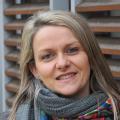 Lory Barile
Lory Barile
 Naomi Waltham-Smith
Naomi Waltham-Smith Michael Ward
Michael Ward